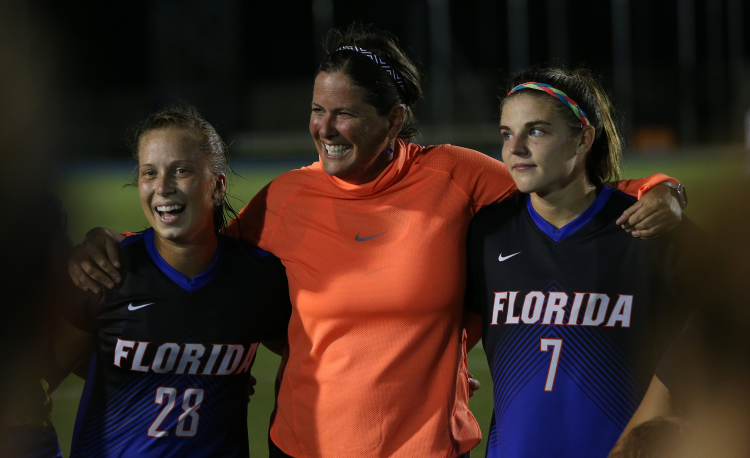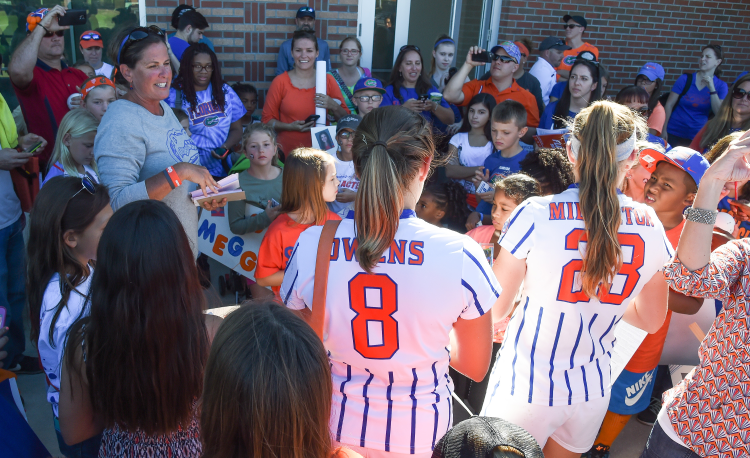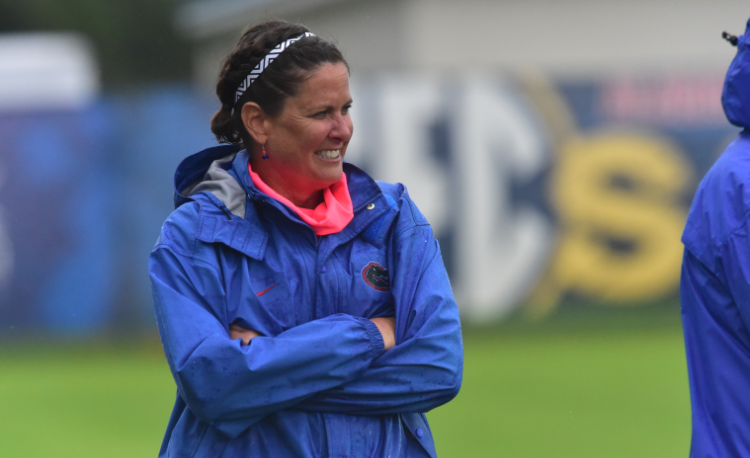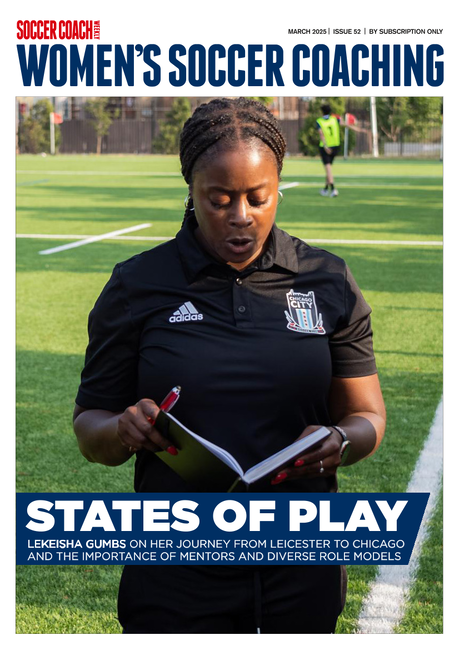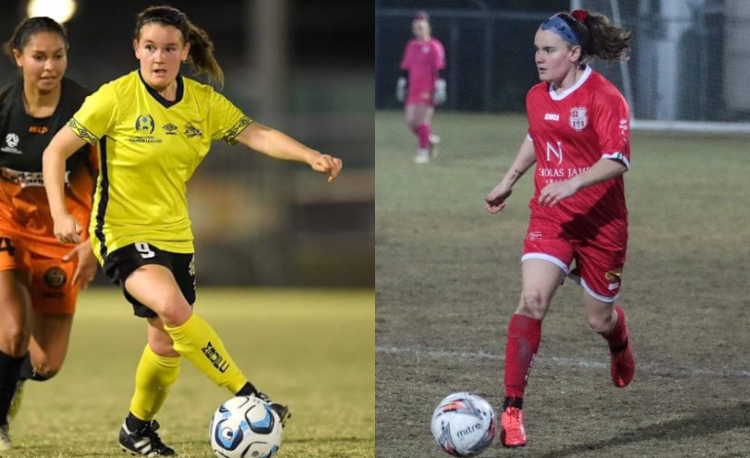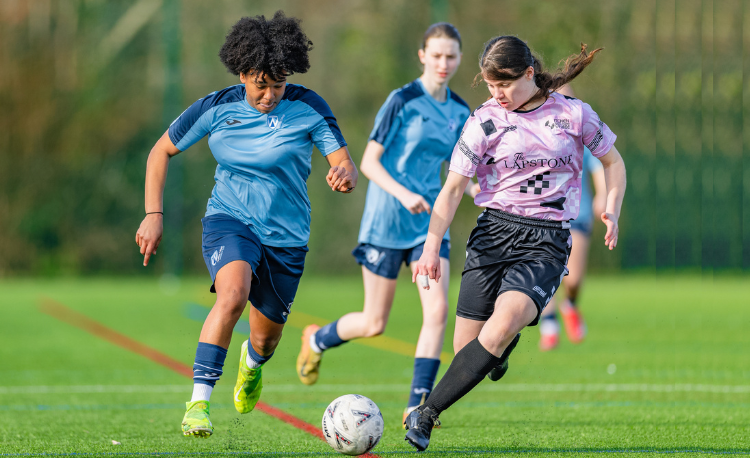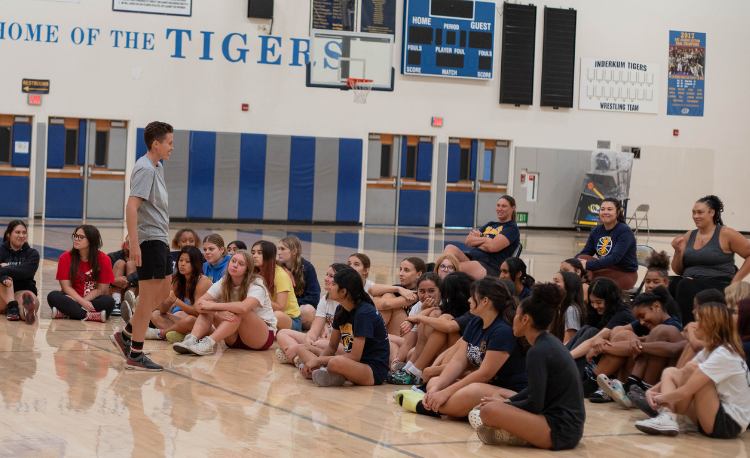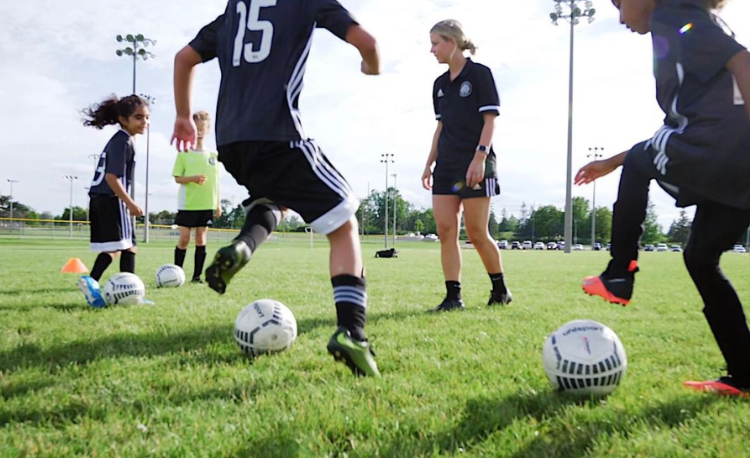You are viewing
1 of your 3 free articles
Becky Burleigh: principles, people and Marta
One of US college soccer’s most successful coaches, Becky Burleigh led the University of Florida program for 25 years and coached a star-studded Orlando Pride. She talks principles, people and Marta with Carrie Dunn.
Not every coach has a box of Q-tips – or cotton swabs – on her desk as a reminder of one of her guiding principles.
But then not every coach is Becky Burleigh, who served as the University of Florida’s women’s soccer head coach for two and a half decades, from 1995 to 2020.
She led them to an NCAA Division I championship in 1998, and still holds second spot in the rankings for all-time wins among coaches at that level.
And, explaining the presence of the cotton swabs, she told WSC: “I feel like longevity in this profession is predicated on the fact that you don’t take things personally.
“And, for me, QTIP stands for ‘Quit Taking It Personally’. The Q-tips box on my desk is just a reminder that feedback is usually more about [other] people than it is about you.
“You have to own the part that is you. But you also have to let go of the part that is not you.”
Burleigh’s own playing career was in Division III at college level, and is notable for a late switch in her position from defence to goalkeeper during her senior year.
“[On] the first day of pre-season, our starting goalkeeper tore her ACL. The second day, our back-up goalkeeper found out that she was academically ineligible,” Burleigh explained.
“On day three, they were like, ‘OK, who’s tall, has decent hands, and is kind of dispensable on the field?’. And I’m like, ‘I am!’”
“I had four players that were older than me! I had to coach more through influence...”
Coaching was something that, by that point, Burleigh had already set her heart on. She saw that her college coach was coaching for a living – prior to that, all of her coaches had been a team-mate’s parent, who was volunteering to help out.
Her parents, though, were not convinced that coaching would be a practical career.
Eventually, they all came to a compromise, agreeing that she would train to become a science teacher and coach alongside that.
But her first coaching job came the month after her own college graduation, as she accepted the job of head coach at Berry College in Georgia, at the age of just 21.
“I had four players on that team that were older than me!” she said. “I didn’t know at the time, but looking back now, because I really had no positional power, I had to learn to coach more through influence.
“That set the tone for my career. I never really understood until looking back at it. But, when you think about it, the higher level you go, particularly when you get like to the professional level, you’re having to do that type of influence.
“You’re not telling a Premier League player: ‘Hey, you’re five minutes late, let’s run some sprints!’”
Burleigh’s learning curve was steep, and she is particularly grateful for the help that she got, both in that first job and when she moved on to lead the new Florida Gators soccer programme five years later.
“Here’s another beautiful thing about being a really young head coach: everybody looks at you and says: ‘Oh man, she’s going to need some support!’.
“So nobody is afraid to help you and you’re not afraid to ask for help – yes, of course, I need some support!
“I was really lucky both at Berry College, where I started, and then at the University of Florida, that there were so many coaches around me who were so accomplished and so experienced, and they were more than willing to reach out and help me.
“I leaned on that hard. I think it took my ego out of the way of having to ask or wanting to ask, and it took their concern about it away, too, because they were like, ‘Yeah, she’s really young, she needs some support’.
“I got to learn from all these people who had so much more experience than me.”
Burleigh’s playing career, at a slightly lower level than she coached, shaped her prioritisation of pastoral care within her own squads.
She said: “When you come through a Division III mentality, it is person over player, because you’re a student first.
“As you move up those ranks, that shifts a little bit, but it doesn’t have to shift in terms of your holistic development of people as you go.”
Burleigh points to the way she worked with the NWSL franchise Orlando Pride as interim head coach after the departure of Marc Skinner in 2021.
“I stayed away from professional coaching for some time, because I thought, ‘That’s a very transactional environment. I’m not sure that’s for me.’
“But when I got there, I was like, ‘You know what? They want holistic development too.’ It’s just not a model that they are used to at that level.”
By ‘transactional’, Burleigh means that professional soccer is so often defined by finance – buying and selling players according to need.
She added: “You’re going to trade players, you’re going to gain players, and it feels like, for a lot of those environments, the coaches don’t really want to get too close to the players, because there is the possibility that you’re going to be losing those players.
“We can all understand that. The teams are conditional, depending on what we need for positions or specific roles. But that doesn’t mean our relationship [with players] has to be conditional.
“So, when we trade a player, that doesn’t mean I never talk to that person again, or not wish them well or support them as they make that transition and help them find the best next spot for them, as opposed to just being, like, ‘Who’s up next?’.
“I feel like there [are] a lot of environments, especially the more you raise the stakes in terms of money, [where] it becomes like a disposable environment for both coaches and players. I’m not sure that’s healthy for anybody’s performance.”
Asked what those she has worked with might think of her, Burleigh opts for the intriguing phrase – “a thinking partner”.
‘You can feel your comfort zone stretching as you gain skills’
Related Files
Burleigh, who now leads a consultancy firm called What Drives Winning, has always looked to add to her skillset.
Coaching, she says, is an ideal line of work for individuals to always have opportunities to learn more. She encourages coaches to push themselves as much as they can – something she says she believes to her core. Indeed, she’s leading by example.
“I currently teach classes at the University of Florida, and I had never done that. I didn’t even know how to use the platform [on] which we teach!
“So, there’s a learning curve to that – but that, to me personally, is what is very stimulating about it.
“You can just feel your comfort zone. You’re definitely out of it, but then you can feel it stretching as you gain these new skills.”
‘THAT TEAM WAS freaking LOADED WITH SUPERSTARS’ – WHY BURLEIGH just COULDN’T RESIST THE CALL FROM ORLANDO PRIDE
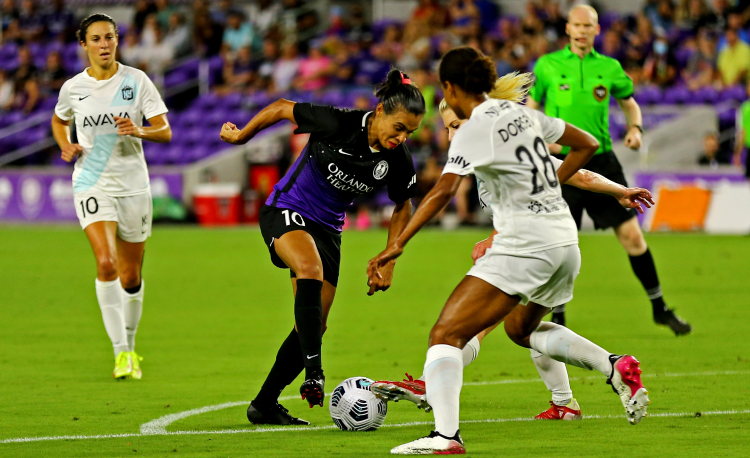
While Burleigh is best known for her achievements as a college coach, perhaps her most high-profile role was a temporary one at Orlando Pride, where she worked with some very famous names.
The job came courtesy of a phone call from the club’s vice-president. At the time, Burleigh had retired from her work at college and taken an extended vacation – but the chance to develop, and take on a new challenge, was one she could not refuse.
“It was just a really interesting opportunity to grow,” she said.
“That team was freaking loaded with superstars. I have to say, there was a part of me, when talking [to the vice-president], being like, ‘Yeah, this is gonna be amazing! I’m so excited about this!’ – and then there was a part of me saying, ‘I have to actually go do this!’
“Getting in front of Alex Morgan, Marta, Ali Krieger, Ashlyn Harris, [Sydney] LeRoux - these are legends in our game, and that really pushed me to grow a little bit.
“I’m so glad I did it because it got me a chance to see what that world is like, and understand it to a different extent than just watching it.”
“That would be the most important thing for me – that I could always be someone they could count on to have a valuable voice, not in terms of advice, but helping them find the solutions that they need,” she says.
Burleigh’s philosophies portray coaching as a dialogue, rather than something unidirectional, and it is a mindset to which she is committed and which she encourages from others.
“We’ve been socialised to be world-class ‘tellers’,” she explained. “We are great at telling people things – we’re kind of bad at asking, we’re kind of bad at listening.
“The good news about that is, just like any other skill, you can get better at it. It just takes practice.”
Encouraging players to be reflective and solve their own problems is something Burleigh believes can be embedded in coaching from junior age groups upwards.
She suggests asking the group for their thoughts on how well a training activity went, inviting them to rate it on a scale from 1 to 10, and then asking for ideas on how to improve it.
“They have the answers. If I tell them, it’s just going in one ear and out the other. If I engage them with questions, they internalise that and it becomes their answer, and we can work on it together.”
“You gain confidence by doing things that make you realise you are a capable human...”
And bringing that in early is key.
“If you ask athletes their biggest struggle, it almost always comes down to confidence,” Burleigh said.
“Well, how do you gain confidence? To me, you gain confidence by actually doing things that make you realise you are a capable human and you can do those things.
“If I was never sourcing my own answers and I’m relying on somebody else’s, that’s a slower [learning] curve, right? But if I come up with my own answers, I try those out.
“Some of them are gonna work. Some of them aren’t. But I’m going to find my own way.”
That’s certainly what Burleigh has done throughout her career. If she had to give her 21-year-old self any advice prior to taking that first head coach role, it would be to ask questions.
“Keep putting yourself out there, keep asking questions” she says, adding that, as she has moved out of coaching and towards a consultancy role, she continues to value her ability to ask questions and to feel confident in not having to have all the answers at once.
“You’ll get better at it the more you do it. It’s going to feel uncomfortable. You’re going to get rejected. You’re going to have all these ‘No’s come your way – but then you’re going to have some ‘Yes’s, and those are going to be amazing.”
Newsletter Sign Up
Newsletter Sign Up
Discover the simple way to become a more effective, more successful soccer coach
In a recent survey 89% of subscribers said Women's Soccer Coaching makes them more confident, 91% said Women's Soccer Coaching makes them a more effective coach and 93% said Women's Soccer Coaching makes them more inspired.
*includes 3 coaching manuals
Get Inspired
All the latest techniques and approaches
Women's Soccer Coaching offers proven and easy to use soccer drills, coaching sessions, practice plans, small-sided games, warm-ups, training tips and advice.
We've been at the cutting edge of soccer coaching since we launched Soccer Coach Weekly in 2007, creating resources for the grassroots youth coach, following best practice from around the world and insights from the professional game.
